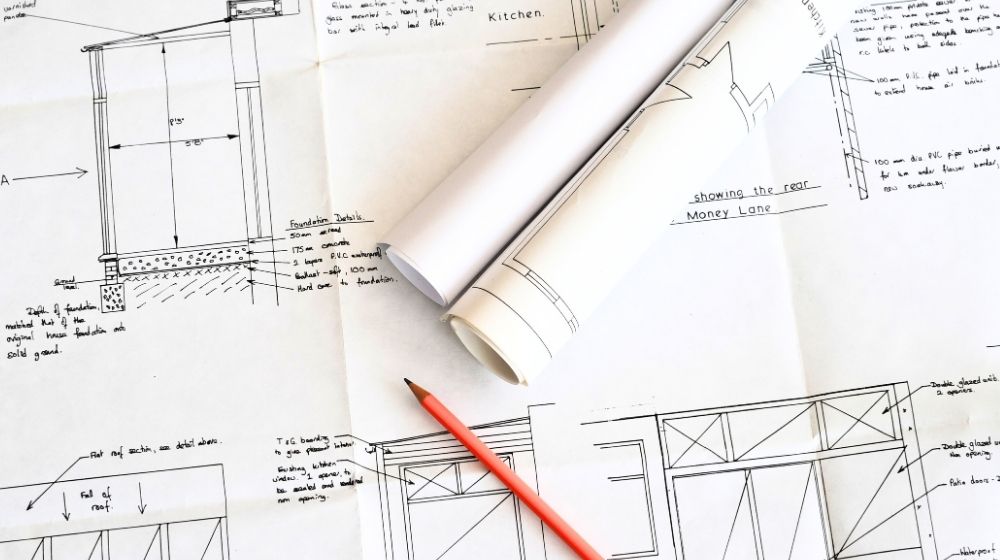The implementation of any investment project requires proper legal protection at every stage, from the inception of the concept to the formal completion of construction and commissioning of the facility. One of the key legal aspects that should be addressed as early as the selection of an architect is the transfer of economic copyrights to the project documentation to the investor and the regulation of the author’s personal rights. The absence of such provisions may result in an inability to modify the documentation or, in the worst case, even block the project’s implementation.
Key Concepts
First, it is essential to explain some key concepts used in the Act on Copyright and Related Rights (“Act”).
A work, according to the provisions of the Act, is any manifestation of creative activity with an individual character, expressed in any form, regardless of its value, purpose, or method of expression. The Act also provides a non-exhaustive list of works, including architectural, architectural-urban, and urban planning works. There is no doubt that a construction project, as well as other types of construction documentation, such as conceptual designs, visualizations, or execution projects, are considered works under the Act and are therefore subject to legal protection.
Economic copyrights grant the creator the right to dispose of the work (e.g., fixation, reproduction, distribution of the original work) and to receive remuneration for it. These rights are transferable and can be assigned to other entities, which is particularly important in the context of economic copyrights related to project documentation.
Moral rights are non-transferable and include, in particular, the right to authorship of the work, the right to mark the work with one’s name or pseudonym or to make it available anonymously, the right to integrity of the content and form of the work and its fair use, the right to decide on the first public disclosure of the work, and the right to supervise how the work is used.
Conditions for the Transfer of Copyrights
Due to the nature of copyright and the entitlements that arise from it, addressing this issue is essential when:
- concluding a contract with an architect for the preparation of a construction project (or other types of documentation);
- concluding a contract for construction works, particularly in the design-and-build system, where the general contractor is responsible for preparing the project documentation.
Both in a contract for preparing a construction project and in a contract for construction works, it is necessary to regulate the transfer of economic copyrights to the project to the investor. Without this regulation, the project cannot be used as intended, and the only entity with disposal rights would be the creator—i.e., the architect.
A contract for the transfer of economic copyrights will be valid and effective if the following conditions are met:
- it must be in written form under the pain of nullity and must clearly state that it concerns the transfer of economic copyrights to the project—otherwise, a statutory presumption applies, according to which, in case of doubt about the contract’s content, it is considered a license agreement;
- it must specify the moment of the transfer of copyrights to the investor—most often, this will be the moment of payment of remuneration;
- the remuneration must be clearly defined, either by stating that the compensation for project execution includes compensation for the transfer of copyrights or by separately specifying the remuneration for the transfer of copyrights;
- the contract should specify the fields of exploitation under which the project may be used and indicate that in the case of the emergence of new fields of exploitation, the rights to use the project will be extended accordingly;
- the transfer of economic copyrights does not equate to the transfer of ownership of the physical copy of the work, so this issue should also be addressed in the contract.
Exercising Moral Rights
Contracts with the architect or the general contractor should also regulate the matter of exercising the author’s moral rights. Since these rights are linked to the creator, they cannot be the subject of a transfer agreement; however, the creator may agree not to exercise them for a specified period.
This is particularly important for project documentation, where modifications are often necessary. Without a limitation on the author’s ability to exercise moral rights, any changes to the project documentation would require their consent, which could complicate the entire process.
Derivative Copyrights
One crucial issue in contracts related to the construction process is the proper regulation of derivative copyrights.
In general, derivative copyrights include the right to modify a work (project), resulting in the creation of a new work that is itself protected. The use of the original work to create a derivative work requires the author’s consent.
The contract should regulate derivative copyrights by including a statement from the author granting permission for the investor or third parties acting on their behalf to modify the work (project) indefinitely and without restrictions.
The contract should also address the matter of remuneration for granting permission to exercise derivative rights, as otherwise, the author could demand additional payment.
Summary
Regulating copyright issues in contracts concluded by the investor is extremely important, as any shortcomings in this area may have significant consequences at various stages of the construction process. Therefore, we strongly recommend paying close attention to copyright provisions in contracts, and in the case of already concluded agreements, we suggest a thorough review of these provisions and making adjustments if necessary.
We have extensive experience in investment and construction-related contracts, including copyright matters. We encourage you to contact our legal team for assistance with any issues related to the investment and construction process.





